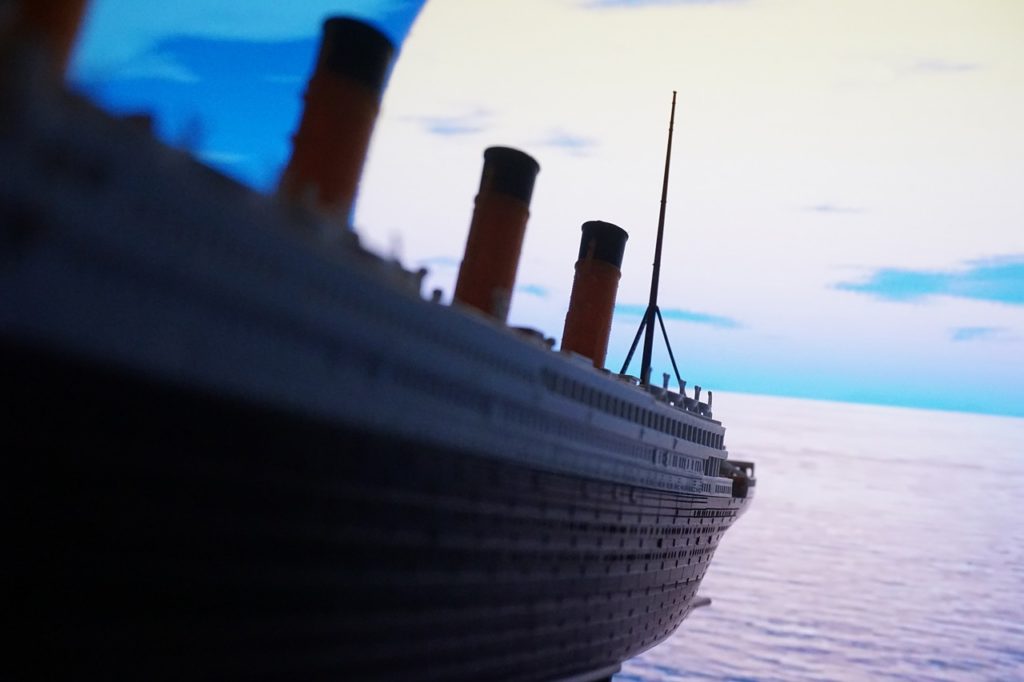
April 15th – A Security Threat
April 15th is historically not a great day for the Security industry. While you can go back on any given day in history and most likely find numerous events that occurred, some significant, some less significant. Some where there were lapses in security, or judgement, or some that were blatant attacks or just events in history. April 15th however sees at least three events that were quite significant.
Going quite a ways back to an event that may have not been as much a security incident but definitely an event that was arguably caused by a lack of human judgement. April 15th, 1912 – Two and a half hours after hitting an iceberg, the Titanic sunk to its watery grave bringing with it over 1500 people. In regards to security – its been noted that the crew was warned on six separate occasions about the monstrous iceberg. Failing to act on any of the warnings, and turning at the last minute – in an effort to avoid a collision, ultimately resulted in the demise of the luxury ship and the majority of the people onboard as well.
Another lapse in safety was that at the time, it was only required that life boats carry at least one-third of people onboard should an evacuation be necessary.
Laws have been changed following this tragedy, notably that there is now a requirement for there to be enough lifeboats to be able to evacuate ALL passengers and crew. Something that should have been common sense, but a lesson definitely learned the hard way.
Next we’ll take a look at April 15th, 1989. What has become known as the Hillsborough disaster. An event that has gone through multiple inquests and enough finger pointing that at some point, everyone involved from fans, to security, has been blamed.
The Hillsborough disaster was a human crush during a FA Cup semi-final game between Liverpool and Nottingham Forest. At the time, there were two standing only sections allocated to the Liverpool supporters. In an effort to alleviate overcrowding at the turnstiles, police opened an exit gate. Unfortunately this resulted in an influx of people, adding to an already overcrowded section. The crush resulted in the loss of 96 lives – which has now been referred to as the Liverpool 96.
Fans were blamed for hooliganism, rowdiness, and over drinking. Police were blamed for lack of control and negligence.
After years of panels, multiple inquests, and multiple coroners inquests, in June of 2017, 28 years after the event, six people were finally charged with various offences including manslaughter by gross negligence.
Lessons learned in this tragedy – standing platforms in English football in the top tiers are now non existent. Assigned seating leading to less cause for over crowding and resulting in no further human crushes.
On April 15th, 2013 – what is now known as ‘Boston Day’, was the Boston Marathon.
Two brothers placed two homemade bombs near the finish line. They were detonated 12 seconds apart resulting in the deaths of three civilians ranging in age from 8-29, and roughly 264 injuries – including many victims which required amputations due to the shrapnel packed in the bombs. Most of which were leg, foot, and below the knee as the bombs were placed on the ground making the impact from the ground up the most significant.
Two police officers also died in the subsequent manhunt for the brothers responsible.
One brother was killed during a shootout and ultimately run over by his escaping brother. The younger brother was later found in a town outside of Boston, hiding in a boat in a residential backyard.
He was found guilty following a trial and sentenced to death. Five years later, he has yet to be executed.
Security for following Boston Marathons as well as larger public events taking place in open spaces has since increased. Tickets were since required to be in the immediate vicinity of the Boston Marathon finishing line. Surveillance cameras and equipment have been added and a larger security presence is now felt.
Three different events, all unfortunately ending with loss of life, but also all being an education for future events and venues.
There may always be a ‘good’ way to do things and that doesn’t make it the wrong way.
However there is most often a ‘better’ way to do things.
At the same time, despite doing things using a good plan, or a better plan, sometimes incidents and accidents happen and unfortunately this is where a lot of lessons are learned.
Good for the future – not so great at the time.
Guest Blogger Rayna Davies
Rayna Davies is a graduate and practitioner of Business Management. She has developed an expertise in blogging, covering subjects like travel, world events and security. Having grown up with a father who has developed an expertise in Physical Security and Executive Protection in the RCMP and two major corporations, she has personally observed and  experienced many security details. These experiences have included personally meeting HM Queen Elizabeth, Prime Minister Jean Chretien and many celebrities. She presently assists Sentinel Security in Executive Protection workshops and guest blogging and also assists Gloprosec Preventative Services in Intelligence gathering and Business Administration. Her passions include World travel, having visited every continent. She currently is on maternity leave and providing daily close protection for a baby and a toddler and spending time with her husband who is a Police Officer.
experienced many security details. These experiences have included personally meeting HM Queen Elizabeth, Prime Minister Jean Chretien and many celebrities. She presently assists Sentinel Security in Executive Protection workshops and guest blogging and also assists Gloprosec Preventative Services in Intelligence gathering and Business Administration. Her passions include World travel, having visited every continent. She currently is on maternity leave and providing daily close protection for a baby and a toddler and spending time with her husband who is a Police Officer.



